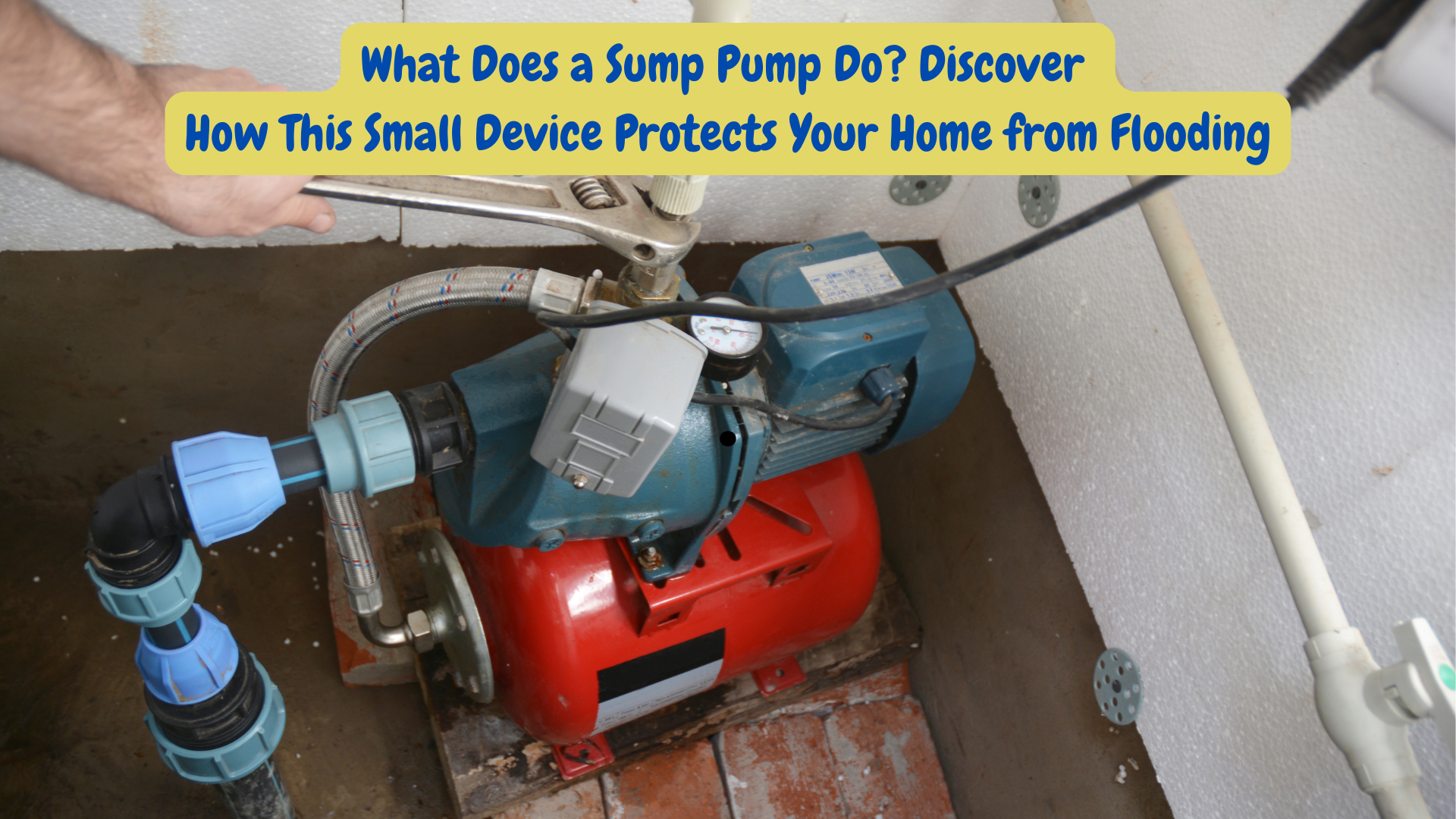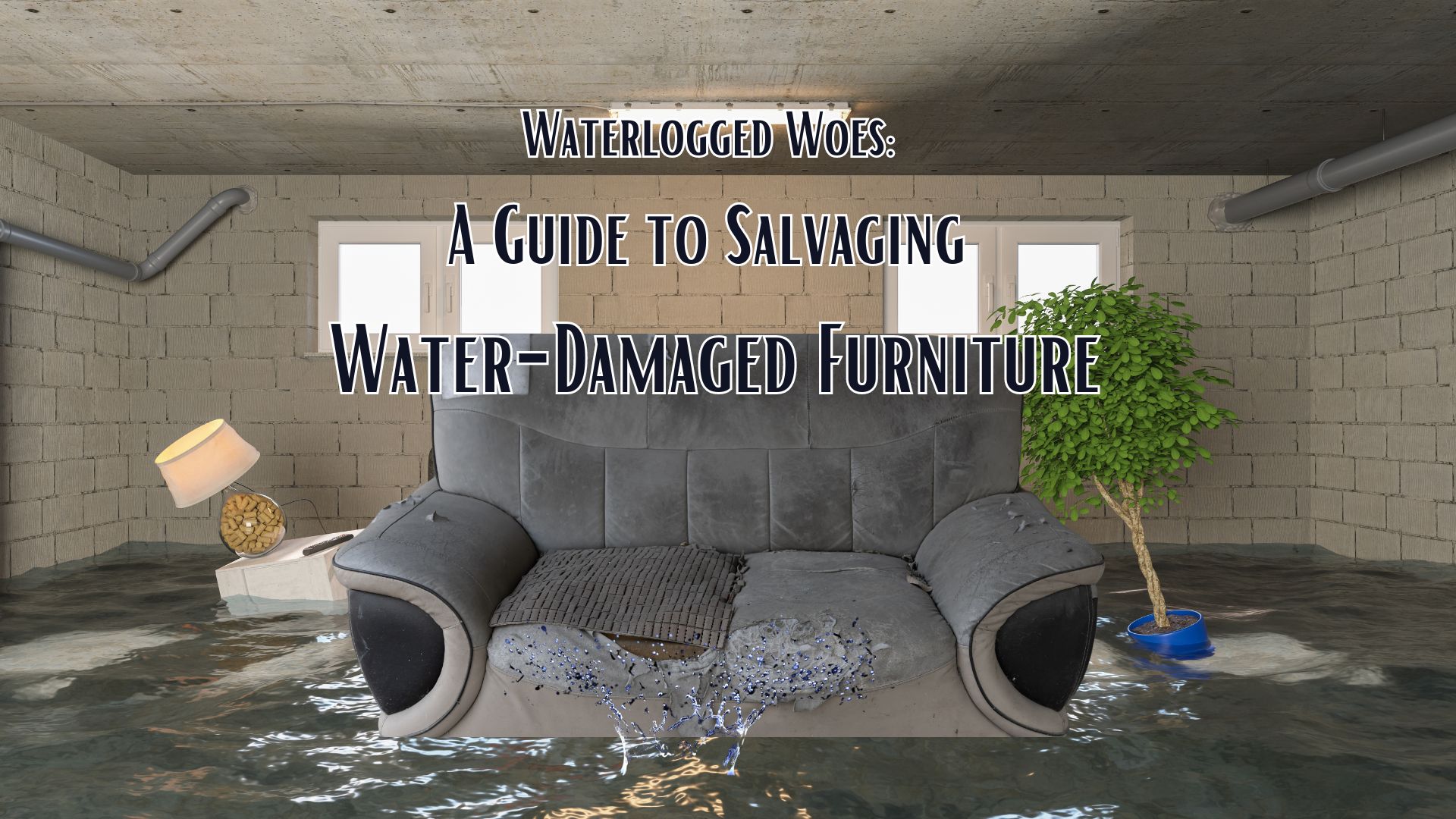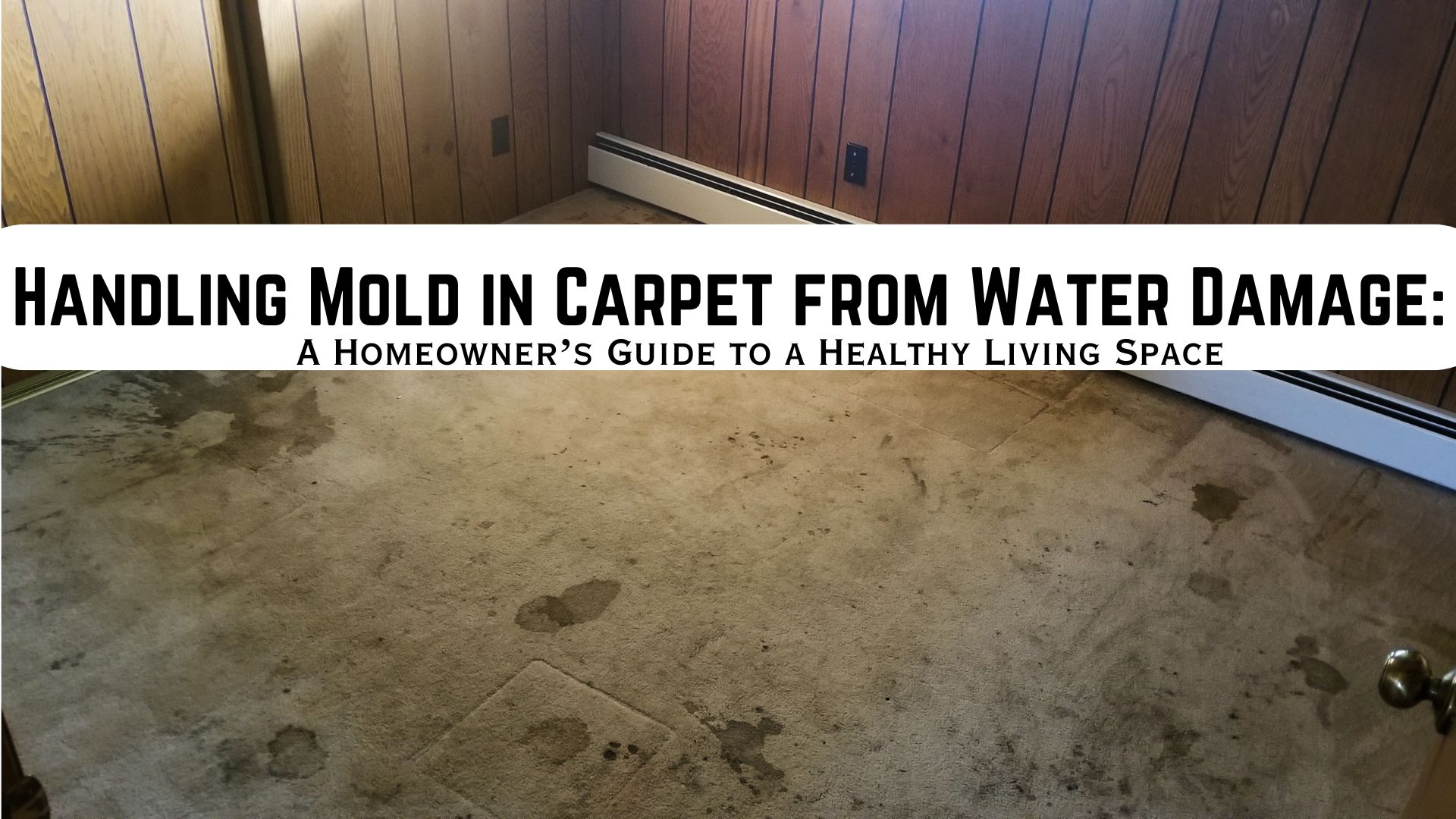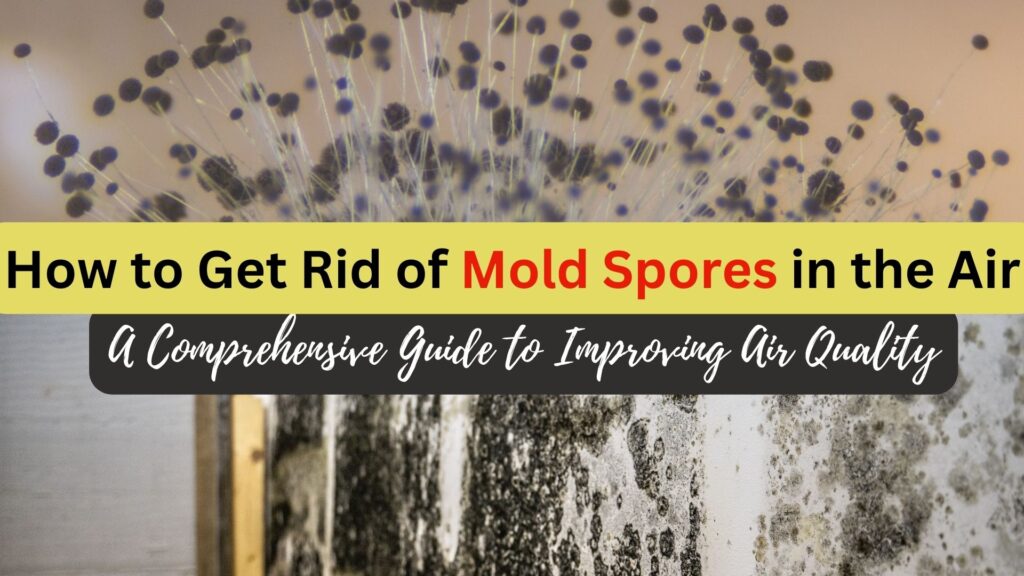
Mold problems can be a persistent issue in many homes, and one of the key challenges is dealing with how to get rid of mold spores in the air. Mold spores are microscopic particles that can cause various health issues, particularly for individuals with respiratory conditions.
In this guide, we’ll explore effective ways to remove mold spores, prevent mold growth, and enhance the overall air quality in your living spaces.
Understanding the Impact of Mold Spores in the Air
Mold spores in the air pose a significant threat to both your health and the integrity of your home. When inhaled, these tiny particles can trigger allergies, respiratory issues, and exacerbate existing health conditions. Additionally, mold growth in your home can compromise structural integrity and lead to costly repairs. It’s really important to quickly and efficiently deal with mold issues.
Identifying Areas of Your Home Prone to Mold Growth
To effectively get rid of mold spores in the air, you need to first understand where they thrive. Mold tends to grow in areas with excess moisture, such as bathrooms, kitchens, basements, and poorly ventilated spaces. Identifying these vulnerable areas is the first step in preventing mold problems and improving air quality.
Tackling Mold at the Source – Identify and Repair Leaks
To truly get rid of mold spores, it’s vital to address the root cause. Identify and repair any water leaks promptly. Leaks create an environment conducive to mold growth, and by eliminating the moisture source, you disrupt the lifecycle of mold. Regularly inspect plumbing, roofs, and windows to catch potential leaks early and prevent mold problems from taking hold.
Mold Growth: Strategies for Creating a Mold-Resistant Living Space
Controlling Humidity Levels
One of the most effective ways to prevent mold growth is by controlling humidity levels in your home. Maintaining a humidity level below 60% helps create an environment inhospitable to mold. Consider using dehumidifiers in damp areas and ensuring proper ventilation to reduce moisture buildup.
Proper Ventilation and Air Circulation
Good air circulation is essential in preventing mold problems. Install fans in your bathroom and kitchen to whisk away extra moisture. Ensure that your home has adequate ventilation, especially in enclosed spaces where mold is prone to flourish. Proper airflow helps keep humidity levels in check and discourages mold growth.
How to Get Rid of Mold Spores in the Air: Effective Strategies
Investing in Air Purifiers with HEPA Filters
Air purifiers equipped with High-Efficiency Particulate Air (HEPA) filters are powerful tools for removing mold spores from the air. These filters are so good that they can catch tiny particles as small as 0.3 microns. This means they can trap mold spores, stopping them from floating around in your home Regular use of HEPA air purifiers can significantly improve air quality and reduce the risk of respiratory issues.
Regular Maintenance and Replacement of Air Filters
To maintain optimal air quality, it’s essential to regularly clean and replace air filters in your HVAC system. Clogged or dirty filters can contribute to the circulation of mold spores in the air, exacerbating mold problems. Get into the routine of checking and changing filters based on what the manufacturer suggests.
Choosing the Right Mold Remover: Tips and Recommendations
Selecting an Effective Mold Remover
When facing a mold problem, choosing the right mold remover is crucial. Look for products specifically designed to remove mold spores and inhibit further growth. Natural solutions like vinegar and baking soda can be effective for smaller, localized mold issues, while commercial mold removers with antimicrobial properties are suitable for more extensive problems.
- Applying Natural Remedies for Mold-Free Air
While commercial mold removers are effective, consider incorporating natural remedies to enhance your mold-fighting arsenal. Essential oils such as tea tree oil, eucalyptus, and lavender boast natural anti-fungal properties. Create a DIY spray by mixing a few drops of these oils with water and use it to clean mold-prone areas. This not only combats mold spores but also adds a pleasant aroma to your living spaces.
Enhancing Indoor Air Quality with Houseplants
Certain houseplants act as natural air purifiers, contributing to a healthier indoor environment. Spider plants, peace lilies, and snake plants are known for their ability to absorb mold spores and other pollutants. Strategically placing these plants in key areas of your home can complement other mold-fighting efforts and elevate your overall air quality.
Mold Spores in the Air: Professional Mold Inspection and Remediation
If you’re dealing with persistent mold problems or extensive growth, consider enlisting the help of professionals. A certified mold inspector can identify hidden mold sources, assess the extent of the problem, and recommend appropriate remediation strategies.
Implementing Routine Cleaning Practices
Regular cleaning is a fundamental step in preventing mold problems. Dust and vacuum frequently, focusing on areas prone to mold growth. Use mold-resistant cleaning products and ensure that damp surfaces are thoroughly dried after cleaning. Consistent cleaning practices not only remove existing mold spores but also create an environment that is less conducive to their growth.
Stay Informed and Proactive
Staying informed about the latest advancements in mold prevention and air quality is key to maintaining a mold-free home. Keep an eye on your local climate, as weather changes can impact indoor humidity levels. Stay proactive by adjusting your prevention strategies accordingly, ensuring that your home remains a haven free from the concerns of mold spores in the air.
Get Rid of Mold Spores in the Air for Better Indoor Air Quality
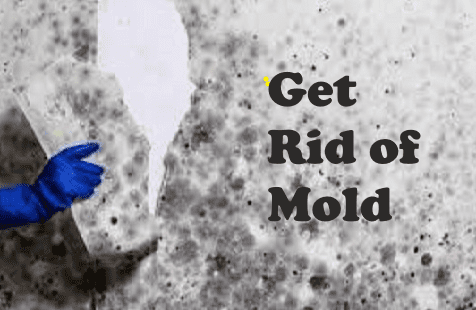
In conclusion, addressing mold problems and getting rid of mold spores in the air requires a combination of preventive measures, effective cleaning strategies, and investing in quality air purifiers. By identifying areas prone to mold growth, controlling humidity levels, and using air purifiers with HEPA filters, you can significantly improve the air quality in your home.
Remember, regular maintenance, proper ventilation, and prompt action in the face of mold issues are key to preventing mold growth and maintaining a healthy living environment. Take control of your indoor air quality today, and breathe easy knowing you’ve tackled mold problems at their source.
Professional remediation ensures a thorough and effective approach to getting rid of mold spores in the air, providing long-term relief and peace of mind. Call Superior Restoration, today! We offer not only emergency water damage restoration services, but fire damage, and mold damage restoration services as well.

